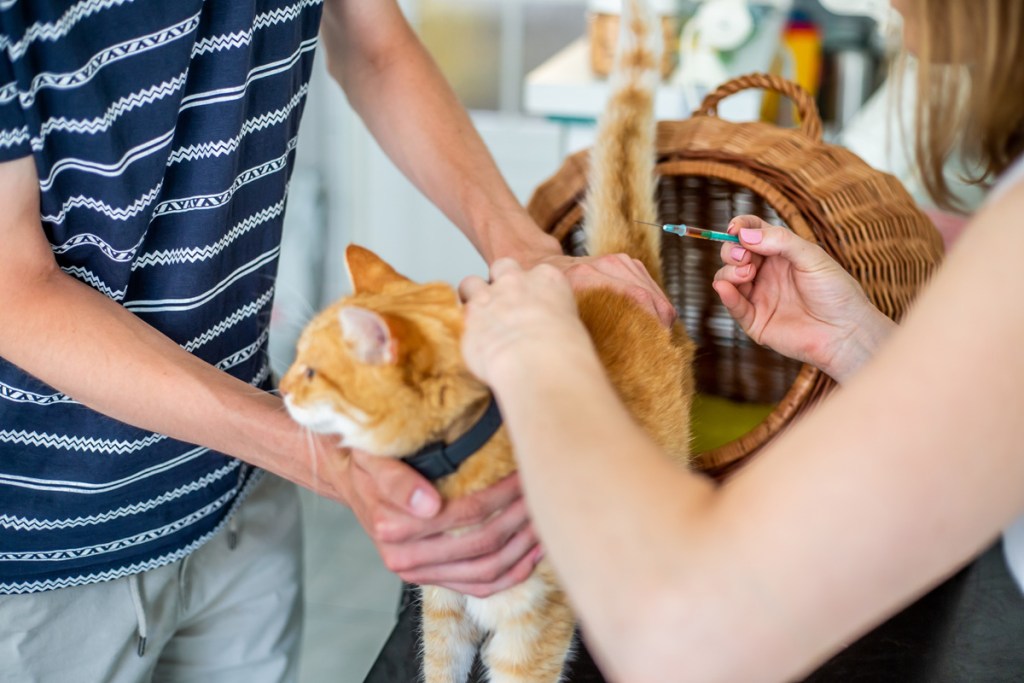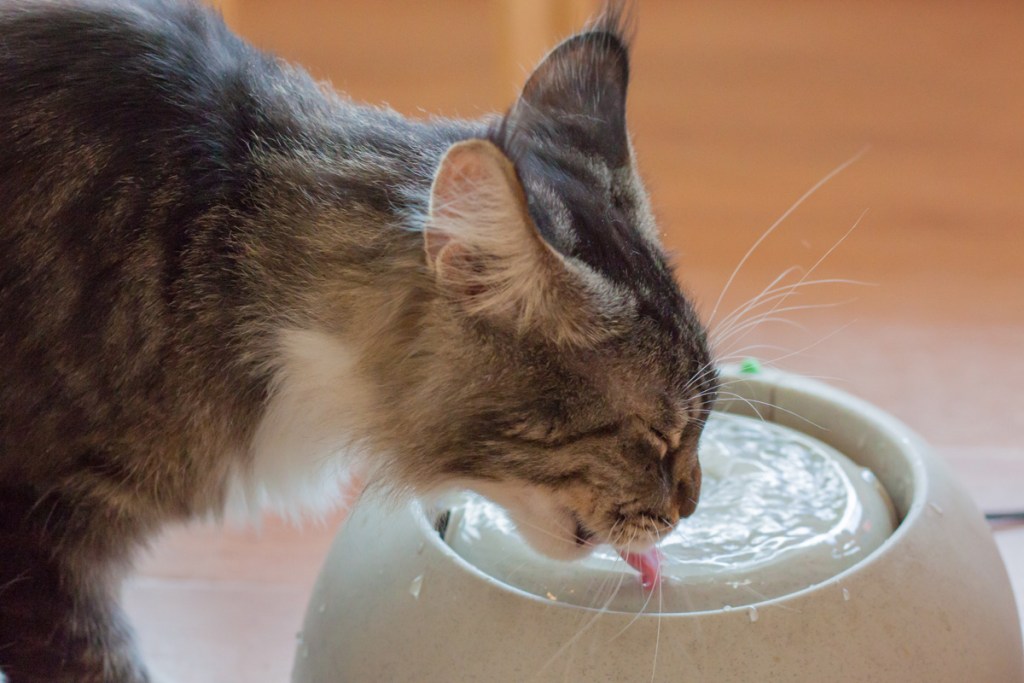Have you noticed that your cat is drinking a lot of water and urinating more? Is he having accidents outside the litter box or constantly begging for food and yet seems to be losing weight? These could all be signs that your cat has diabetes and should be examined by a veterinarian.
Feline diabetes, known as diabetes mellitus, is a condition that occurs when a cat’s body cannot produce enough insulin to balance blood sugar or glucose levels. Veterinarians say that diabetes in cats is similar to type 2 diabetes in people. When left untreated it can lead to long-term health problems and even death. Feline diabetes is diagnosed based on symptoms and the result of blood and urine tests. Diabetic cats will have elevated levels of glucose in their urine and blood.
According to experts at Banfield Pet Hospital, feline diabetes has become increasingly common, with about 1 in every 100 cats being diagnosed with the disease in their lifetime. The disease is most often seen in cats who are obese, on a diet high in carbohydrates, or over 8 years old, and in male cats who are neutered.
How is feline diabetes treated?
While there’s no cure for diabetes, affected cats can have a good quality of life with proper management. The key to controlling diabetes is to keep blood sugar levels near normal and avoid numbers getting too high or too low, either of which can be life-threatening, say experts at the American Veterinary Medical Association (AVMA). Weight loss, a change in diet, and insulin therapy may all be prescribed as part of a treatment plan. In an article published by PetMD, veterinarian Jennifer Coates also recommends increasing exercise for diabetic cats. This can be as simple as placing a cat’s food dish in out-of-the-way places, forcing him to move more to reach it, or playing active games with him, like chasing toy mice or laser beams.
According to PetMD, with early, aggressive treatment of diabetes, many cats will enter a state of diabetic remission, meaning they can maintain normal blood sugar levels without insulin injections. If a cat has not entered diabetic remission within the first 6 months after diagnosis, he will likely require life-long insulin injections.

What does a diabetic cat look like?
The earlier the diagnosis, the better your diabetic cat’s chances for a longer, healthier life. The four signs that your cat may have diabetes include:
- Frequent urination – this happens because the kidneys try to rid the body of excess glucose in the blood by producing more urine.
- Increased thirst – the more your cat urinates due to diabetes, the thirstier he will be.
- Increased appetite – diabetic cats may eat more because their bodies cannot break down and use glucose for energy.
- Unexpected weight loss – lack of insulin makes a diabetic cat feel hungry but despite eating more the cat will lose weight.
Does diabetes in cats cause aggression?
Cats who aren’t feeling well may act agitated or aggressive toward people and other animals. Experts at Paws Whiskers and Claws Feline Hospital in Georgia say that diabetic cats can be “out of sorts due to physical discomfort.” They may hide and be less sociable, but it’s not out of spite; it’s because they aren’t feeling well. Also, what might seem abnormal behavior to us constitutes a survival instinct for cats, according to experts at the Georgia cat hospital. In the wild, sick or weak cats are potential victims and they change their demeanor to ward off potential predators.
If your cat goes from sitting on your lap to no longer wanting to be held or has frequent mood swings, diabetes could be the reason, and it’s worth a visit to the veterinarian to see what’s going on.
What are the final stages of diabetes in cats?
According to experts at Preventive Vet, the later signs and symptoms of diabetes in cats include:
- Walking flat on the back of the hind legs – this is referred to as the “plantigrade stance” and happens because of damage to the nerves in the back legs.
- Difficulty jumping onto high places – a cat’s activity level changes; he may no longer be able to jump onto furniture and may crouch and appear uncomfortable.
- Vomiting, lethargy, and lack of appetite – when a cat reaches this stage, his health is most at risk.

Eventually, diabetic cats who go untreated will develop diabetic ketoacidosis (DKA). This happens when a cat’s body has had to rely for too long on burning fats for energy, rather than the glucose that cells require. Cats at this stage will not eat or drink and will become dehydrated and lethargic, say experts at PetMD. Eventually, they will go into a coma and will die if not treated with intensive medical therapy.
In conclusion
If your cat is diagnosed with diabetes, don’t panic or despair. Instead, sit down with your veterinarian and learn all you can about managing your cat’s health. Ask questions and be sure you understand exactly what’s involved, including how to give insulin shots. While initially giving your cat an insulin injection may seem overwhelming, over time the process will become routine for owners as well as for cats, say AVMA experts. Yes, taking care of a diabetic cat is hard work, but once his blood glucose is managed, he can enjoy a happy life.
Editors' Recommendations
- Wondering why cats chirp? Fascinating reasons why your cat chirps at birds (and you)
- How to tell if your cat is a Maine Coon mix (and why you should care)
- Why doesn’t my cat meow? Here are 5 reasons why your feline friend is silent
- The kind of nutty behavior to expect if you don’t neuter your cat
- Why you should feel honored if your cat sleeps at your feet




